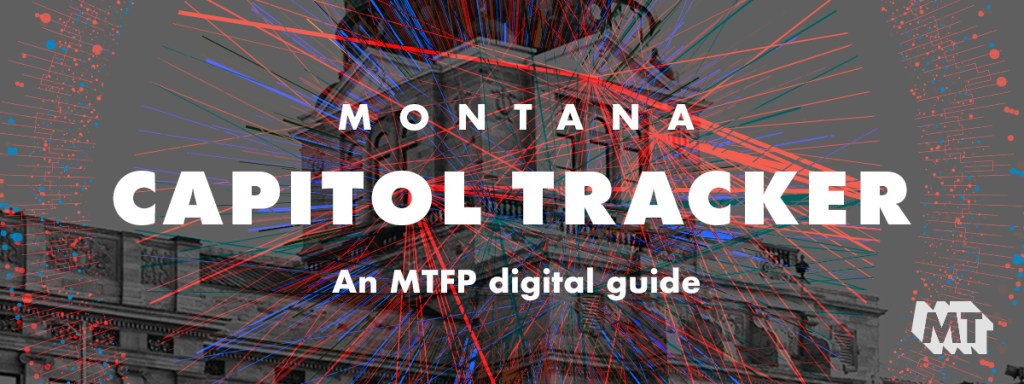The Montana Democratic Party is attempting to block changes to voting rights laws signed by Gov. Greg Gianforte. The changes would create more stringent identification requirements for voters and end same-day voter registration in the state, which Montana voters approved on the 2004 ballot.
The suit was filed in District Court in Yellowstone County shortly after Gianforte’s bill signing Monday and requested that a judge immediately bar Secretary of State Christi Jacobsen from enforcing the new laws. In its complaint, the Democratic Party argues that same-day voter registration has been “critical to protecting the voting rights of tens of thousands of Montanans.” It specifically cites testimony from legislative proceedings earlier this year highlighting the geographic and transportation challenges faced by rural, elderly, disabled and Native American voters — challenges the party maintains have been alleviated for the past 16 years by voters’ ability to register, update their voter information and cast a ballot in a single trip.
Democrats also argue that more stringent identification requirements will burden college students and low-income voters. Under the new law, individuals without a government-issued photo ID or a Montana concealed carry permit must produce non-government photo ID plus a second identifying document, such as a utility bill, in order to register or to receive a ballot at the polls.

Both bills were requested by Jacobsen, whose office did not respond to a request for comment on this week’s legal challenge. The lawsuit claims that, given “the absence of any voter fraud” in the state, neither change is justified.
“Fair access to the ballot box for all eligible voters — whether they are Republicans, Democrats or independents — is essential to the Montana way of life,” Montana Democratic Party Executive Director Sandi Luckey said in a statement. “We will continue to hold accountable any leader who attacks our democratic institutions.”
The lawsuit quickly garnered national attention following an announcement on social media by Marc Elias, whose law firm, Perkins Coie, is representing the Montana Democratic Party. Elias is a prominent Democratic election attorney and fought against the Trump campaign’s attempts to overturn the 2020 presidential election, racking up dozens of legal victories in the months following Trump’s defeat to President Joe Biden. His firm has already filed lawsuits challenging election law changes similar to Montana’s in Georgia and Iowa. Elias also operates the progressive advocacy website Democracy Docket dedicated to election litigation and voting rights developments across the country.
Earlier this month, the Brennan Center for Justice listed Montana as one of 47 states where legislators had introduced “restrictive provisions” impacting absentee voting, voter identification and a range of other election procedures. Supporters of these largely Republican-sponsored measures have predominantly cited increased election security and integrity as the impetus for change. Opponents, meanwhile, have denounced the efforts as flagrant acts of voter suppression. Adding to the debate is a massive overhaul of federal election laws introduced by congressional Democrats earlier this year. The so-called For the People Act, which would challenge many of the current state-based restrictions with a sweeping expansion of voting rights, passed the U.S. House in early March and is now awaiting action in the Senate.
latest stories
Republican lawmakers mount three separate pushes for special sessions
A trio of special session requests from Republican lawmakers each touch on election-year issues, but lawmakers have historically had little success calling themselves into a special session.
What Montana’s candidates for governor have to say about renewing Medicaid expansion
We asked Republican, Democratic and Libertarian candidates if they would support reauthorizing the low-income health care program, which has in the past been the subject of vigorous debates in the Capitol — and is up for renewal again next year. Here’s what they had to say.
‘I hope I can be an example to others:’ Carroll to celebrate Indigenous graduate
During spring commencement, Jaydee Weatherwax — a member of the Blackfeet Tribe from Browning — will become one of the first Native Americans to earn a master’s degree in social work from Carroll College in Helena.

